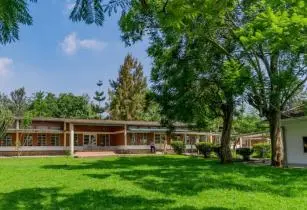Sustainable cooling experts from around the globe are taking part in a key virtual summit on ‘Accelerating Sustainable Cold Chain in Africa’ that will give Africa’s policy makers and business leaders the tools to help keep farmers’ produce fresh
The summit is taking place on 19 October and will help in getting farmers’ produce to market quickly and efficiently – reducing food waste, boosting profits and creating jobs.
The event supports preparations to open the African Centre of Excellence for Sustainable Cooling and Cold Chain (ACES). Along with helping farmers reach new market opportunities, ACES will also improve cold-chains for vaccines and health – bringing together multi-disciplinary UK and African expertise with commercial partners.
One can register at bham-ac-uk.zoom.us/webinar/register/WN__hZRb1jmRo6RMjWzxKWteQ to take part in the summit.
Hosted by the British High Commission and Rwanda’s Ministry of Environment, the event is supported by the UN Environment Programme’s United for Efficiency (U4E), the Centre of Sustainable Cooling, the University of Rwanda (UR), the University of Birmingham, and a number of UK universities.
The summit will inform audiences of the latest developments at ACES headquarters in Kigali and affiliated Living Laboratories anticipated throughout the continent to scale up adoption of sustainable cold chain solutions. There are ongoing close discussions with Defra regarding further funding to build on early investment and activities.
High Commissioner Omar Daair said, “Climate change is the greatest challenge facing the world today, and agriculture is vital to the livelihoods of so many Rwandans and to economic development across Africa. I’m looking forward to see how this partnership of world’s leading experts from the UK, Rwanda and beyond will find solutions to the challenge of sustainable cooling.”
Professor Toby Peters added, “Farmers need robust and sustainable means of getting perishable produce to urban markets. This high-profile summit moves us closer to achieving this goal in Rwanda and the wider continent without using fossil fuels.”
“ACES will develop and demonstrate ways of delivering affordable lowest carbon emissions cooling and cold-chain systems while meeting Africa’s social and economic cooling needs. Without a robust and sustainable cold chain, the continent will struggle to feed its millions of citizens effectively or meet its export targets to drive growth.”





